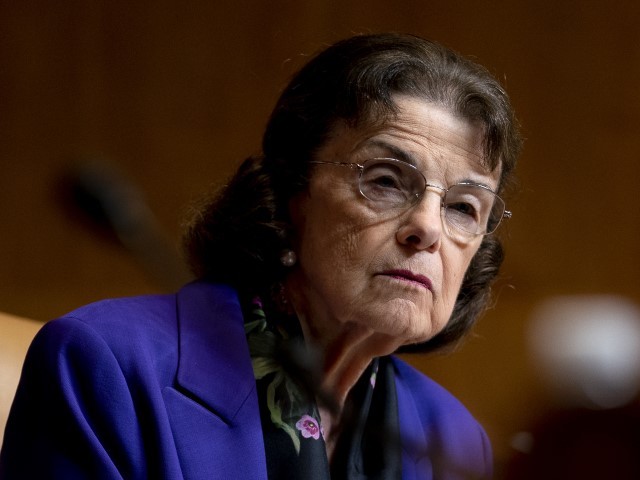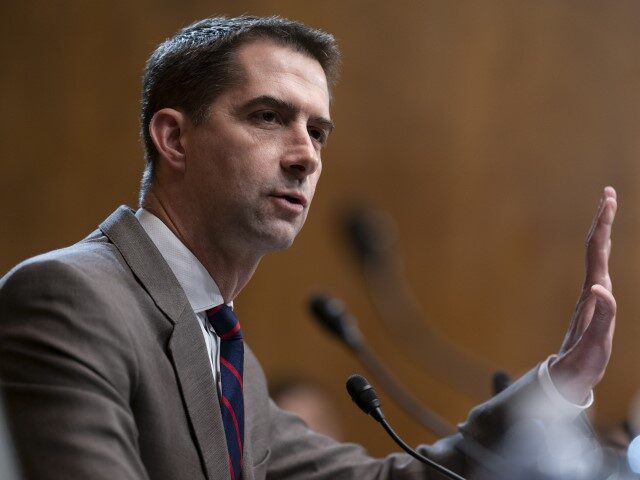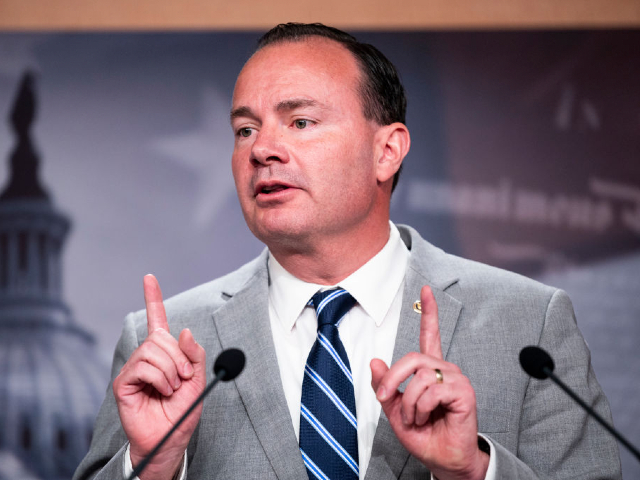The Ted-Cruz-backed Journalism Competition and Preservation Act (JCPA) promotes censorship — a prime reason Democrats and the liberal media support it — Sen. Tom Cotton (R-AR) suggested on Thursday.
“There’s a reason that Dems and the liberal media universally support the Journalism Competition and Protection Act. And it’s not because they want to protect free speech for conservatives,” Cotton said on Thursday. His remarks coincide with a Senate Judiciary Committee meeting on the bill, in which Sen. Ted Cruz (R-TX) attempted to explain why he caved to Sen. Amy Klobuchar’s (D-MN) measure:
The bill allows media organizations to create cartels to negotiate with Big Tech companies. While Klobuchar insisted on Thursday that the bill is “not about content” but “simply about negotiating prices,” that is not the case.
“The Journalism Competition and Protection Act (JCPA) lets the media form a cartel to negotiate w/ big tech,” Cotton warned Wednesday. “Conservatives should oppose special treatment for favored industries, and a cartel will lead to more censorship. Republicans should vote NO on the JCPA.”
Breitbart News’s Allum Bokhari reported:
Specifically, the new JCPA contains a provision that allows “eligible” media companies forming a cartel to “create admission criteria for membership unrelated to the size of an eligible digital journalism provider or the views expressed by its content, including criteria to limit membership to only eligible publishers or only eligible broadcasters.”
That provision is significant especially for its specificity. These mainstream and left-wing media cartels may not exclude based on size or “views expressed by its content.” But that is not how the exclusion happens or will happen.
These self-appointed mainstream and left-wing media cartels ARE allowed to exclude based on the usual, totally subjective factors they always do, such as: “trustworthiness,” “fake news, “extremism,” “misinformation,” “hate speech,” “conspiracy,” “correction policy,” “expertise,” “authoritativeness,” etc.
This essentially opens the door for further abuse from arbitrary “fact-checkers,” who have attempted to discredit real news, frequently smearing conservative outlets as untrustworthy over the years, Bokhari explains:
Despite misleading the American public for years – even winning a Pulitzer for their efforts – most of the news companies that pushed the discredited “Russiagate” conspiracy theory, like the New York Times and the Washington Post, continue to receive a “green” approval rating from NewsGuard, while news outlets that debunked the conspiracy theory, like Breitbart News and Fox News, are smeared as untrustworthy and unreliable.
It is easy to imagine a news cartel pointing to NewsGuard criteria – or the criteria of any organization presenting itself as an “independent watchdog” – as an allegedly viewpoint-neutral excuse to exclude conservative and independent media.
Democrat Sen. Alex Padilla (D-CA), during a September 8 Judiciary Committee meeting, said the quiet part out loud, essentially exposing his colleagues’ true agenda, which they hide under the guise of preserving local news.
“How will this bill help or hurt our efforts to combat hate speech and disinformation online that have poisoned our discourse in recent years as Senator Kennedy has lamented?” he asked, adding, “And I agree.”
Similarly, during that same meeting, Sen. Dianne Feinstein (D-CA) read a letter from the Los Angeles Times and the San Diego Union Tribune, which argued that the failure to take action will “erode” the ability to combat disinformation.

In this June 9, 2021, file photo Sen. Dianne Feinstein (D-CA) attends a Senate Appropriations Subcommittee hearing on Capitol Hill in Washington. (Stefani Reynolds/The New York Times via AP, Pool, File)
The addition of the Cruz-Klobuchar amendment does nothing to address these concerns. Sen. Mike Lee (R-UT), speaking before the committee Thursday, made it clear that it is “still a bad bill.”
“This is still a bill that undermines competition. This is still a bill that actually exacerbates the dependence of news publishers on Big Tech. It certainly doesn’t solve it and I think it makes it a lot worse,” he warned.
Sens. Marsha Blackburn (R-TN) and Josh Hawley (R-MO) also stand in opposition to the measure.


COMMENTS
Please let us know if you're having issues with commenting.